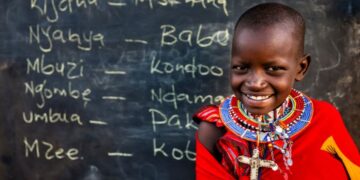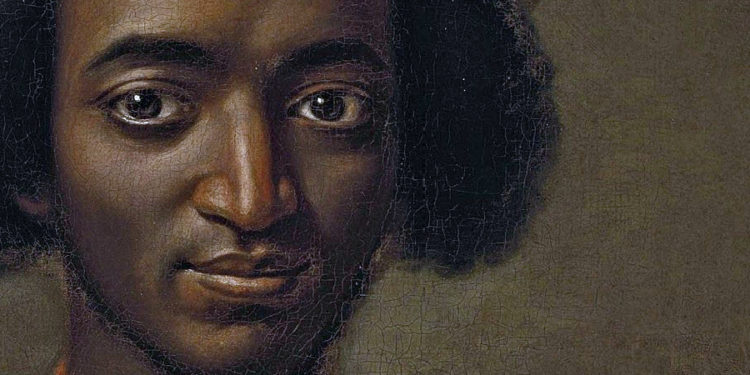Ayuba Suleiman Diallo also known as Job Ben Soloman was a former slave of Fulani descent, The kidnapped slave went through the hands of many slave dealers from his hometown in Africa, America, and Europe before regaining his freedom.
His story, though an unusual one, showed how a man of noble birth lost his freedom and later regained it. Diallo’s experience inspired artistic works and books that serve as a relic of one of History’s brutal periods.
Who is Ayuba Suleiman Diallo?
Ayuba Suleiman Diallo was born in c.1701 in Bundu, Futa Toro, Senegal. He was born into an affluent Fulani family of educated Islamic scholars. His father Ayuba Diallo was a cleric and a leader among the Fulbe people, also known as Fulani.
His father’s political influence is traced back to his grandfather, who is generally believed to be the founder of Bundu.
Thus, his family’s affluence gave him the privileges of wealth and sound education; opportunities that will be a great mark in his life years later.
Shocking Facts About The Fulani Prince That Was Kidnapped Into Slavery
1. Ayuba Suleiman Diallo was Captured When He Went To Sell Slaves
He was captured and sold into slavery at a young age. Unlike the story of other African that were sold into the TransAtlantic trade that lasted for about four centuries, Diallo was from an acclaimed family.
Reportedly, he was also a slave merchant. When he was kidnapped, he traveled to the seaport alongside a close friend and translator identified as Lamin Ndiaye.
However, the plan did not go as planned when he was kidnapped by the Mandigo people renowned for their role as middlemen at the time. Despite revealing his identity to his captors, they did not free him, instead, they sold him into slavery.
He alongside others were disguised as prisoners of war by their captors who shaved their heads. Diallo was then sold to officials of the Royal Niger company, one of the biggest merchants in West Africa at the time.
2. He Continued Practising His Religion In Captivity
Ayuba found his way to America and was under Vachell Dento before he was later purchased by Mr. Tolsey, a plantation owner. Due to his family background, farmwork was not suitable for him. Hence, he was placed in charge of cattle.
Aside from this, he held onto the religion he grew up in-Islam. He prayed and observed Islamic devotions. This would cause a rift since the slave masters were Christians. Moreso, his faith led to public humiliation after a child saw him praying in 1731. He made attempts to escape from the Tolsey farm, but, his attempts were futile after he was caught and arrested.
His motive for trying to escape was not understood perhaps due to how slaves were disregarded at the time. Also, he was made to face the law because any attempt by a slave to escape was a serious offense.
While at the courthouse, he refused to drink wine leading to more suspicion about his faith.
3. He Met With Thomas Bluett When He Was Arrested
His reason for trying was made known by the reverend and lawyer Thomas Bluett whom he met at the courthouse. Bluett had knowledge of Arabic and their meeting with another man that understood the language was quite fascinating as they soon became acquaintances.
Not only that, Bluett learned of Diallo’s experiences from a firsthand account.
4. The Bundu Native Wrote a Letter To His Family While in America
Aside from Bluett, Job Ben Solomon’s background made his master, Tolsey allowed him to write a letter to his family back in Africa. This came about after Tolsey realized that Diallo had aristocratic blood.
The letter which was written in Arabic passed through many hands till it got to James Oglethorpe, Director of the Royal African Company.
Oglethorpe also forwarded the letter to John Gagnier, a senior Arabic scholar at Oxford university who revealed the content of the letter. Oglethorpe was moved by Diallo’s experience and this led him to buy Diallo for £45 after which he sent him to the office of the company in London.
He became suspicious of Bluett, thinking he wanted to resell him. As such, he learned how to speak the English language on his way to London.
Pertaining his letter, he made it clear that he did not want his wives to remarry. Moreover, it remains unclear if his father whom he addressed the letter ever got it or not.
5. He Became a Member of The Gentlemen’s Society Despite Being a Slave
Ben Solomon arrived in London in 1733. Notably, his life was not as harsh as when he was in America. He used his aristocratic carriage to attract the elites of London. Through these people, he got gifts that added to his prosperity.
Some of his acquaintances include the royal family, John and Mary Montagu. This prompted his induction into the Spalding Gentlemen Society.
6. He Rejected The Attempts to Convert Him to Christianity
Having made important contact with some of the influential men in London society, there were several attempts to convert him to Christianity. It is reported that he was gifted a copy of the Bible written in Arabic to drive home this point, even at that, he refused.
With a vast knowledge of religion and the Bible, he did not accept the trinity since he considered Jesus to be a prophet.
Other aspects of Roman Catholicism such as images may have been other areas of the Christian belief system that pushed him away because he perceived it as assigning human images to God.
7. Job Ben Solomon Worked in the London Museum
He engaged his Arabic knowledge and assisted Sloane in arranging Arabic manuscripts in the London museum.
8. The Fulani Former Slave’s Story inspired Some Firsthand Accounts of the Slave Trade
As mentioned earlier, Bluett gathered his first-hand account of Diallo’s life in their interactions. The memoir, The Life of Job, The Son of Solomon High Priest of Boonda is one of the only firsthand narratives of slavery experience.
The writing of the memoir which was a collaboration between Diallo and Bluett had its compromise. The African-born agreed to help Bluett in exchange for help to return home to Futa Toro, the region of his hometown. Also, the book was completed in 1734 after Diallo’s return to Africa.
Another account of his life was written by the British novelist and traveler, Francis Moore. Moore wrote Travels Into the Inland Parts of Africa.
9. His Freedom was Influenced By Public Outcry
As mentioned earlier, his time in London brought him goodwill. His work with the right class of London society led to support for him to regain his freedom. The public was not left out of it.
This would eventually lead to his freedom and his return to Africa.
10. He was Imprisoned By The French Government After His Return
His return to Africa was not as perfect as he had dreamt of. He met a homeland that was impoverished due to the colonial wars. Also, his family was not as he had left it. His father had died while one of his two wives remarried thinking he would never return.
Nonetheless, he managed to fit in due to the wealth he returned with.
Away from this though, he became a person of interest to the French who were suspicious of him as a British spy. This led to his arrest and imprisonment in 1736 for over a year.
Thankfully, his countrymen were able to secure his release. He made attempts to return to London after this but his requests were never granted.
11. The Truth About the Death of Ayuba Suleiman Diallo
His death in 1773 at the age of 72 generated a lot of interest in how the life of the famous former slave ended. He lived for forty years after his return and is reported to have also become a slave merchant for the Royal African Company after his return.
However considering his experiences as a former slave, it is unclear if this is true. Moreso, his death was peaceful and surrounded by his family.
See Also: 10 Shocking Truths About Slave Trade History In Africa
12. The Qatar Museum’s Portrait of Him is One of the Only Ones for a Former Slave
Years after his death, his portrait has become a relic as it is one of the only pictures of a former slave. The portrait was painted in 1733 by William Hoare. It was bought by the Qatar museum in 2009.
However, due to the importance of Diallo’s role in the slave trade and British history, the National Portrait Gallery in London appealed for funds to buy it. The gallery raised the sum of £554,937 to enable it to buy. However, the Qatar museum chose to loan it instead.
Ayuba Suleiman Diallo may have been born into affluence, yet he was forced into slavery like many other victims of the trans-Atlantic slave trade. Unlike most, he regained his freedom and returned to his homeland years later making him one of the few that ever made it back. Other famous slaves that returned include Malik Ambar and Olaudah Equiano.





















Discussion about this post